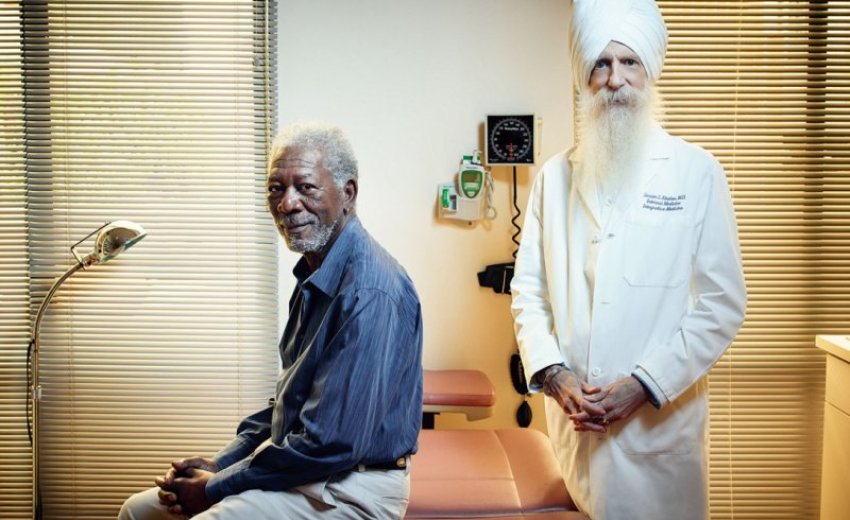Dr. Soram Khalsa, featured in The Hollywood Reporter's Top Doctors Issue, combines traditional medical practices with acupuncture, homeopathy, herbs and vitamin therapies.
This story first appeared in the Sept. 19 issue of The Hollywood Reporter magazine.
Because his new patients don't always understand what integrative medicine is, Dr. Soram Khalsa encourages them to view a video.
In it, the 66-year-old turbaned and bewhiskered internist — he adopted Sikhism, a religion founded in 15th century Punjab, in 1971 after a bout with chronic fatigue syndrome led him to yoga for relief — explains how he combines traditional medical practices with acupuncture, homeopathy, herbs and vitamin therapies, particularly vitamin D. (Author of The Vitamin D Revolution, Khalsa says 90 percent of his new patients are D-deficient.)
Between optimum health and cancer, he says, there exists a "gray zone" in which organs might not be clinically diseased but still can cause symptoms Western medicine can't detect or treat. "A lot of people's problems — fatigue, backaches, migraines — are not well treated with traditional modalities like narcotics," says the Yale-educated Khalsa, who was raised in Cincinnati, attended Case Western Reserve University School of Medicine in Cleveland, has been on staff at Cedars-Sinai for 30 years and is a clinical instructor at UCLA's David Geffen School of Medicine.
Morgan Freeman and Judith Light are among his longtime devotees. Says Light: "I had just startedWho's the Boss? and was exhausted. Dr. Khalsa is a brilliant diagnostician — he saw all of these things that have been lifelong problems. I attribute my energy and much of the longevity of my career to him."
A 45-year-old producer with ulcerative colitis that was not responding to steroids and immunosuppressive drugs was put on a regimen of Chinese herbs and acupuncture. "Over the course of six months, we tapered from a very high steroid dose to none at all," Khalsa tells THR. "Some months later, his gastroenterologist did a colonoscopy and was shocked to see that there were no lesions in his colon." Pronounces Freeman: "Dr. Khalsa was referred to me by a close friend. I am very grateful for the referral."
